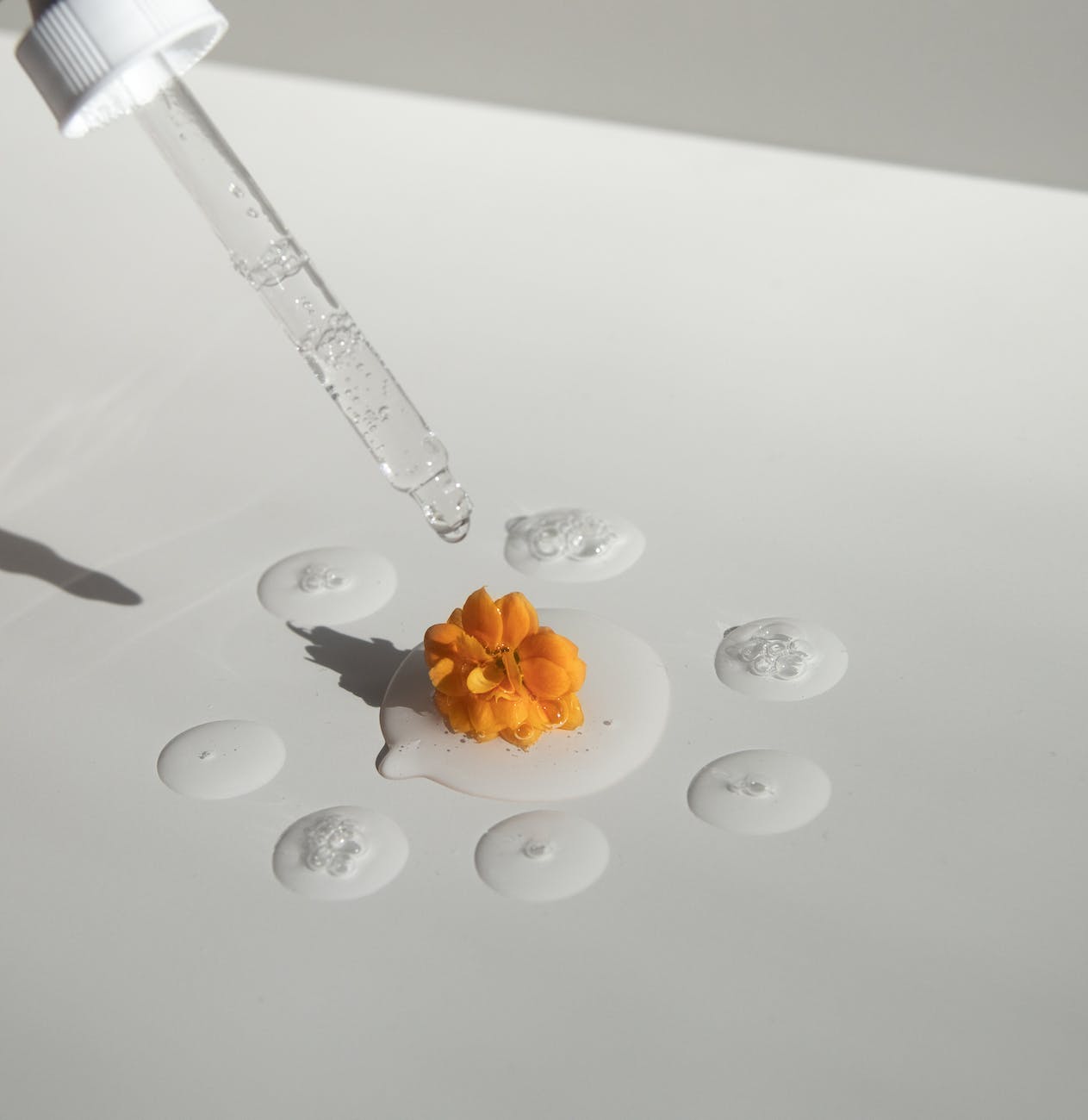Bergamot oil has a pleasant aroma, a spicy flavor, and a wide range of potential uses and advantages. It is also used as a cosmetic ingredient and as a flavoring in Earl Gray tea.
Bergamot oil comes from the skin of bergamot orange trees’ citrus fruit (Citrus bergamia). The bergamot tree is thought to have originated in Southeast Asia.
It was named after the town of Bergamo in southern Italy, where it initially gained popularity, and it is now grown in many regions of the world.
What is the best way to utilize bergamot oil?
Some studies indicate that essential bergamot oils may have health advantages.
Bergamot oil is available online and in some health food stores. To apply to your skin, combine the olive oil and then apply.

Before applying it to a broad surface area, test it on a small patch of skin to check for an allergic reaction. If a response occurs, stop using the oil.
Bergamot’s unique citrus aroma is frequently found in personal care goods such as perfumes, colognes, shampoos, and cosmetics. Edible bergamot oil is also used to flavor foods and beverages. It may possibly have medicinal properties.
Aromatherapy
Bergamot essential oil is well-known for its aromatherapy benefits. Here are a few examples of how you can put it to use on a regular basis:
- To use as a body lotion or for massage, combine 15-30 drops of bergamot essential oil with a carrier oil.
- 2-5 drops of Bergamot essential oil can be added to products like body wash, shampoo, and face scrubs.
- Bergamot oil can be used to scent handmade candles and air fresheners. You may also dab it in vaporizers to spread the aroma around the room or add it to potpourri.
- For a relaxing smell on the go, dab it on a bandana or handkerchief.
According to a 2017 study, utilizing bergamot oil in aromatherapy as an adjuvant therapy for mental health may be beneficial. However, the report warns that more research is needed to determine the oil’s long-term impact and safety.
Skin
Several components in bergamot oil are immunomodulatory, wound-healing, and anti-inflammatory.
If you do NOT have sensitive skin, bergamot oil may be an excellent spot therapy for acne or other minor skin sores. Bergamot may also aid in the relief of psoriasis symptoms.
How do you use bergamot oil?
Using bergamot oil as a spot treatment for acne or other minor skin concerns, follow these steps:
- Diluted bergamot oil in a carrier oil and apply immediately to pimples, cysts, tiny wounds, and blackheads.
- Allow it to sit overnight.
- To use as a face rinse, dilute the oil with water or your preferred cleanser.
Hair
Bergamot oil devotees (and those who prefer soft, delicately scented hair) swear by its ability to soften and control curls. According to anecdotal evidence, bergamot oil may also be soothing to an inflamed scalp.
Using the oil on your hair may help encourage hair growth, according to some data.
To use: mix a few drops with your regular shampoo. As an evening treatment, combine 1 – 2 drops with a tablespoon of carrier oil, like olive oil, and massage into your scalp.

Combination with other essential oils
Many additional essential oils have similar properties. Experiment with the ones you like and try mixing them together. You might try blending the following with bergamot essential oil:
- Lavender oil: Lavender is a famous aromatherapy perfume. It’s commonly found in skincare, hair care, and acne treatments.
- Tea tree essential oil: Tea tree oil, known for its antimicrobial characteristics, may help combat acne and alleviate skin inflammation.
- Chamomile oil: Calming as a tea or applied to the skin, chamomile may also improve mood.
To decide the quantity of each oil in your combination, keep in mind that bergamot has a strong aroma that can overshadow other scents, although it fades quickly. Other oil scents may be less intense, but they will last longer. These criteria might help you decide which oils to blend and in what proportions.
If you don’t have an allergic reaction, it’s probably okay to use. Remember to use a carrier oil or other dilution to help protect your skin.
Bergamot oil benefits
Bergamot oil research has revealed numerous benefits. These are some examples:
Stress reduction
A tiny 2015 Japanese study on women discovered that inhaling bergamot oil mixed with water vapor reduced sensations of worry and exhaustion.
A 2017 study backs up these and other previous findings about mental health. Researchers believe it can be used as an additional therapy for mental health.
Combats food poisoning
Bergamot compounds may be efficient at killing bacteria that cause food-borne diseases.
Older research has discovered that bergamot oil can be used to help manage food-borne infections and may be a better alternative than using antibiotics and other chemicals, especially as bacteria become more antibiotic-resistant.
A 2016 study also looked at the effect of various types of bergamot essential oil on strains of Listeria monocytogenes, the bacteria that causes listeriosis. Listeria samples from several sources, including fish and poultry, were used by the researchers.
The various bergamot formulations inhibited the development of the various bacterium samples in varying degrees. Given the diversity, the researchers concluded that the efficiency of bergamot essential oil against food germs should be calculated.
A 2017 study on herbs and the Aspergillus fungus discovered that bergamot oil has antifungal properties. The qualities of the oil can aid in suppressing fungus development. A similar effect on fungus that can infect fruit was discovered in another in vitro 2022 study.
This may be especially useful in preventing fungus growth in foods, which may also assist in reducing the usage of chemical preservatives. However, bergamot oil does not dissolve easily in water and degrades quickly, which may be a barrier to its usage in this application.
Reduces cholesterol
According to a 2019 assessment of studies, numerous studies have revealed that bergamot oil may be able to lower cholesterol.
A 2016 analysis of human and animal studies suggested that flavonoids in bergamot may help lower lipid levels. The study did, however, highlight that the precise mechanism underlying this result needs to be understood.
This finding was also confirmed in a 2018 animal study. It was also shown that bergamot polyphenols had an anti-inflammatory impact on the livers of rats recovering from nonalcoholic fatty liver disease.
Pain and inflammation are reduced.
Bergamot oil contains the chemicals linalool and carvacrol. A 2017 study looked at the impact of several essential oil components on pain sensitivity and other situations in people and animals.
It was discovered that both linalool and carvacrol have analgesic, anticonvulsant, and anti-inflammatory properties when administered in a variety of ways, including skin application.
The assessment also stated that further research into the potential toxicological consequences of essential oils in humans is needed. Another study on rats in 2020 confirmed similar findings.
However, it is unclear from these trials how bergamot oil can be utilized to accomplish these benefits in humans or whether this is safe.
The Dangers of Bergamot Oil
Before using bergamot oil, there are several concerns to consider.
Bergamot essential oil can be irritating to certain people’s skin, especially when not diluted with carrier oil. Bergamot oil, like other essential oils, can occasionally induce allergic dermatitis.
Symptoms of a bergamot oil allergy or sensitivity may include:
- redness
- hives
- sensation of burning
- blisters cause discomfort
If you additionally have difficulty breathing, swelling lips or tongue, nausea, and vomiting, you may be suffering from anaphylaxis, a potentially fatal reaction. Someone nearby should contact 911 or take you to the emergency room right away.

Anaphylaxis
Anaphylaxis is a potentially fatal extreme reaction to a trigger, such as an allergy.
Symptoms might appear suddenly and include:
- fainting or lightheadedness,
- trouble breathing or wheezing, fast heartbeat
- anxiousness caused by perplexity
- Hives,
- clammy skin,
- collapsing or losing consciousness,
- stomach swelling, nausea, or vomiting
If you or someone close to you experiences these symptoms, you should:
- Examine to see whether they have an epinephrine pen. If they do, read and follow the drug dispensing directions.
- Call 911 (or the appropriate local emergency number).
- Set them down. If they’ve puked, turn them on their side.
- Keep an eye on them until help arrives.
Someone may require more than one injection using an epinephrine pen. If symptoms do not improve within 5 minutes, administer a second injection if one is available.
Was this useful?
To ensure that you are not allergic to bergamot oil, test it on your skin. Apply the oil diluted with carrier oil to a dime-sized region of your forearm. Make a solution with twice the concentration you intend to use.
For example, if you want to utilize a 3% bergamot oil solution in a carrier oil, prepare a small sample of 6% for this patch test. It should be safe to use if there is no allergic reaction within 24 hours.
Pregnancy
Bergamot oil is safe to use during pregnancy, according to the National Association of Holistic Aromatherapy.
However, a lower concentration may be required. Before using aromatherapy during pregnancy, you should contact your doctor.
Learn more about pregnancy and essential oils.
Direct sunlight exposure
Even if diluted in a carrier oil or a skin care product, never leave bergamot oil on your skin during the day or in direct sunlight. Certain oil components can produce photosensitivity, which can result in an allergic skin reaction.
If you are concerned about the sensitivity of your skin to sunlight, look for bergapten-free bergamot oil. This is especially crucial if you are taking medications that may make you more sensitive to sunlight, such as some antibiotics.
Interactions
Bergamot oil, which can be harmful, should never be consumed. Furthermore, even inhaling or using the essential oil topically can cause interactions with some drugs.
Since essential oils are not regulated by the FDA, you never know whether you’re using pure oil or one laced with other compounds.
Before using bergamot oil, make sure to check for interactions with other drugs. One method to do this is to talk to your pharmacist or doctor about any medications you’re taking that may interact with essential oils.
Commonly Asked Questions
Does bergamot oil put you to sleep?
It may help lower anxiety when used in aromatherapy, which may encourage better sleep. It may help you fall asleep more easily if you use it as an aromatherapy before bed.
What is the source of the high price of bergamot essential oil?
Pure bergamot oil can be expensive. This is most likely owing to the time-consuming nature of manufacturing even small amounts of oil. This is also why you should avoid cheaper, lower-quality items that may be blended with other components.
Is bergamot oil effective at repelling mosquitoes?
The aroma of bergamot may work as a natural insect repellant. According to some research, this effect is milder than that of other essential oils. To use, combine a few drops with water and set them in a clean misting container. The spray can then be applied to your clothing or specific regions of your skin to help repel mosquitoes and other insects.

To Conclude
Bergamot essential oil has a pleasant citrus aroma and may already be present in the cosmetics you use.
Bergamot oil has been shown in some studies to reduce inflammation, cut cholesterol levels, and improve good mood.
When using the oil, however, make sure to dilute it with a carrier oil or water. Some people may get skin irritation or allergic responses as a result of it. It can also cause photosensitivity and should not be used on skin that has been exposed to the sun. You should never take bergamot or any other essential oil by mouth.
